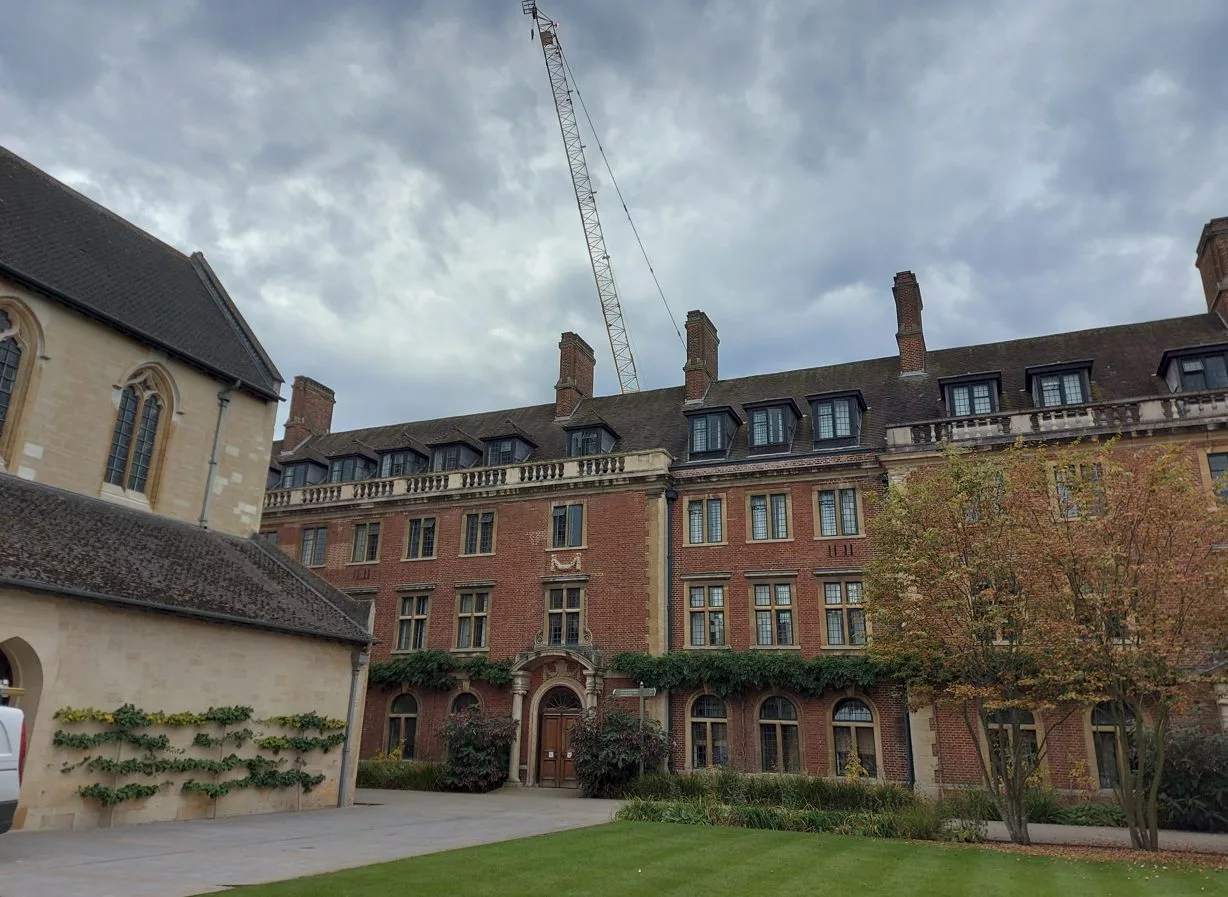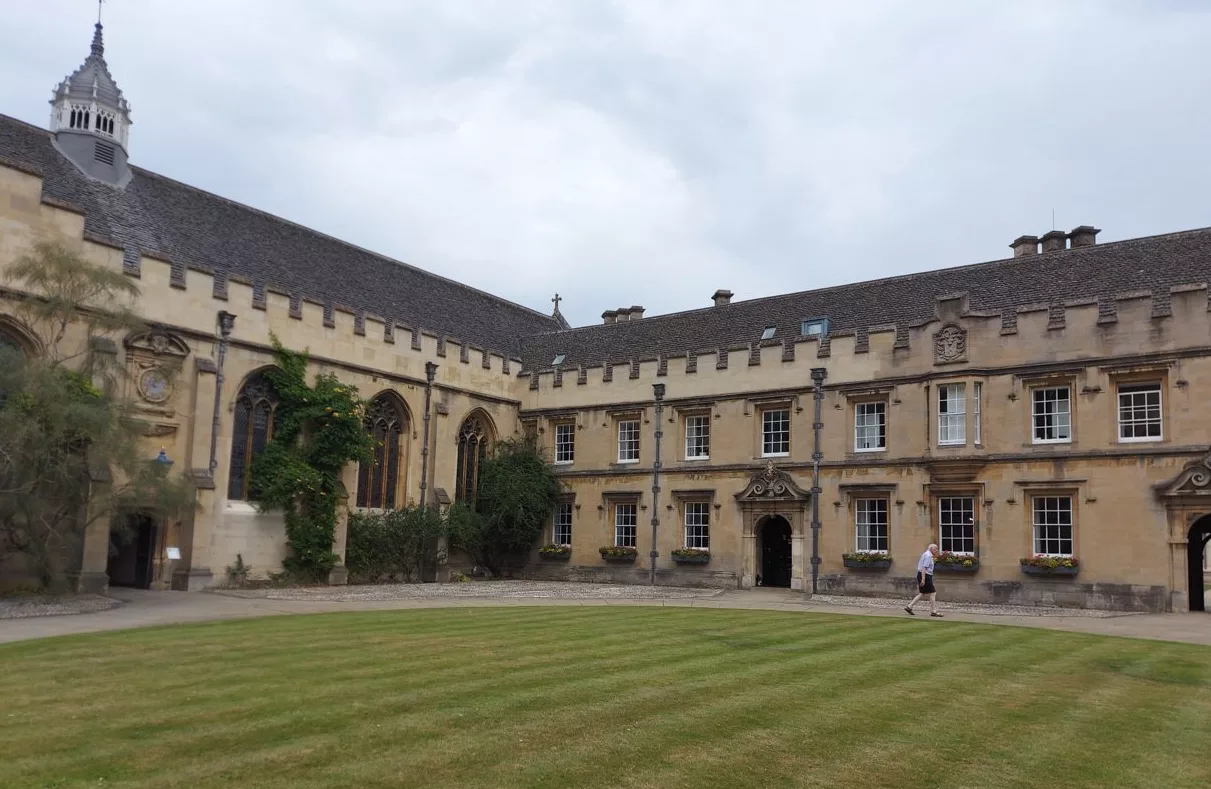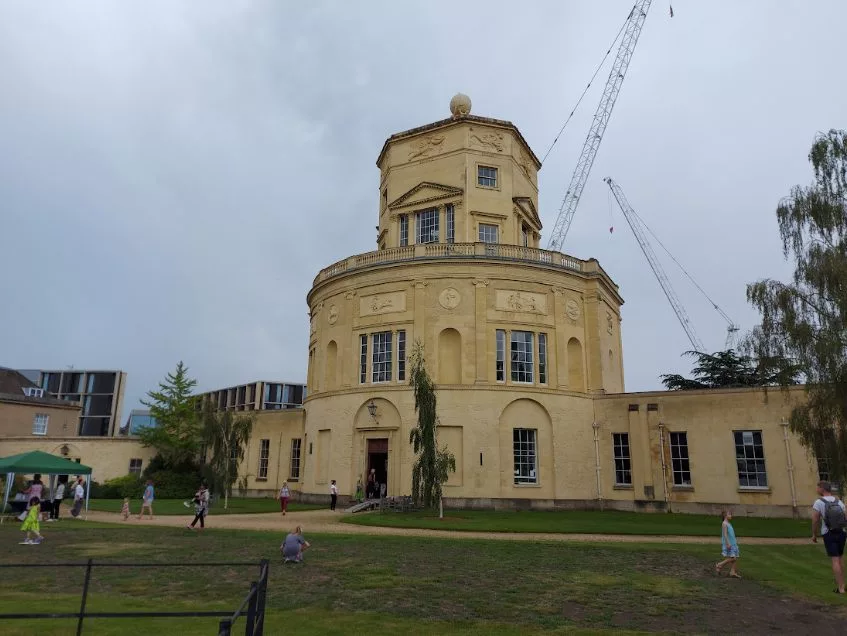The Zoom screen flitters from darkness to the gradual clarity of humanoid pixels. I am looking at the official face of tomorrow. As the Mock COP28 delegate and I launch our discussion of a manifesto against the existential threat of a world overheating, “all that is solid melts into air.” (The Communist Manifesto, p.218)
Molly Scrase-Kings is a third year biochemist at Hertford College. While some may have spent the summer jet-setting and globetrotting in the name of life experience, Scrase-Kings was collaborating with hundreds of youth leaders in the name of saving the planet. At Mock COP28, the Oxford biochemist and the team of young delegates solidified a manifesto for climate education.
Someone’s gotta do it. And infernal hell knows it ain’t going to be the University of Oxford.
A bandwidth away from me, in a seat of climate progressivism is Molly Scrase-Kings. After completing work for the conservation charity, Raleigh International, Scrase-Kings was encouraged to apply for this conference of young people tasked with coming up with a plan for global climate education. She explained to me that her journey from Oxford biochemistry to UK delegate at Mock COP28 was detached from the University.
Before going into the details of her time at the conference, I was interested in the extent of Oxford’s involvement in Scrase-Kings’ path to Mock COP28.
“Did you discover the Mock COP28 opportunity thanks to Oxford?” I asked. A firm “no” followed.
“Oh, Ok. But, Raleigh International came from your tutor or the Careers Service emails, right?” I followed up hopefully.
“Well, no.”
And so, I found myself enquiring – some four minutes into our eighteen minute discussion – “have you at all found out about anything to do with conservation or climate justice through the University?”
“Um, no. Not really.”
There you have it; those words were floating in the metasphere of our Zoom call. It was final. The University of Oxford, among the world-leading universities in earth sciences research, had had no hand whatsoever in taking one of its own from dreaming spires to pioneering international climate policy.
Scrase-Kings, therefore, is an example of the student will, untarnished by university-based, ‘adult’ involvement, to contribute actively to improving our prospects against the climate crisis.
This will was to be exercised at Mock COP28 where the primary concern, as Scrase-Kings explained to me, was to come up with a rejuvenated manifesto for tackling the crisis that the adult world’s tired policies seem to perpetuate. Mock COP28 presented a unified youth statement created by delegates from across the globe to education ministers and climate policy representatives in order to “really try to raise ambition for climate education in all of these countries,” as Scrase-Kings summarised.

The biochemist said: “we’re told we’re the generation that should sort this out. We’re going to have to deal with it at the worst level. And yet we’re not supported to have the skills to deal with it or even the ability to deal with just the anxiety of it.” Mock COP28 is not a replica of the ‘adult’ version but a conference on the integration of climate crisis management into the lives of young people in the most common way known to them: through their education.
Climate education is becoming increasingly concrete as a result of youth campaigns such as Mock COP28. But it’s a branch of education that is absent from these hallowed halls of learning. It could be a blameless move from Oxford. Ultimately, it’s the government’s “shoehorning of climate education” into pre-existing policies of youth engagement, as Scrase-Kings observed, that gives places like Oxford the excuse to not prioritise – at least consistently – climate education. For the deniers, climate education is perhaps a product of the “tofu-eating wokerati” and for the others, this existential threat is debilitatingly frightening. We’re in an unhelpful culture of stalemate and a relentless lack of progress makes for boring education.
Learning at Oxford, Scrase-Kings said: “we need to equip ourselves for the changing world and to ultimately change the culture around climate education. But I haven’t seen that in my degree and I haven’t seen it in my friend’s degrees really at all.” Is this Oxford’s fault or a governmentally encouraged antipathy towards climate education?
Molly Scrase-Kings thinks that we’re at a point where climate education “should be threaded into every subject.” A poll conducted by Cherwell found that 44% of participants strongly disagree with the statement that “the climate crisis comes up frequently with tutors/teaching staff or in lectures/tutorials”. Indeed, 63.4% of participants are either dissatisfied or strongly dissatisfied with the University’s response to the climate crisis.
Where respondents were less uniform, however, was in stating where responsibility lay for leading action against climate change. Should we bother holding the University accountable when students should be leading the response anyway? Cherwell poll respondents were level in agreeing that the University has more responsibility than students to act (23.1%) and being neutral on the balance (28.8%).
To the Mock COP28 delegate, Molly Scrase-Kings, “Oxford has a massive responsibility. It is a full front runner, and it should be a leading role model, not just in academia.” Currently, however, it appears that the climate crisis is not confronted regularly enough even in the subjects where you would expect it to be. Scrase-Kings continued: “I’ve heard so many complaints that there’s not enough diversity for environmental economics. And there’s not much in biochemistry at all.”
In Cherwell’s poll, other students reflected on being dissuaded from action against climate change not by academia but by the rigorous nature of Oxford’s student activism. One respondent wrote: “I do find Oxford activism quite intense; it has an established wrong and right way to deal with issues and I find it intimidating.” There is no doubt that activism is student-led at Oxford. Scrase-Kings said that from the University “I see glimmers [of action], but it’s really student led and student pushed.” It being so student-heavy and with only “glimmers” of University support, it’s perhaps no wonder that the activism scene is intense and demanding.
As you go higher up, support for tackling the climate crisis evaporates further. Molly Scrase-Kings told Cherwell she is beginning work with SOS-UK to fill in the gaps in the ambitious (quixotic?) plans for climate education announced by the DfE last year. Which are, as Scrase-Kings put it, a “bit late” anyway.
The plans, once again, are symptomatic of a government that is just a tad too busy to deal with the climate crisis. They detail a hollow programme of distributing learning resources in “carbon literacy training” (whatever that means!) to every nursery, school and college by 2025. This will be enabled by the work of people like Molly Scrase-Kings at SOS-UK and the reward for such selfless charity will undoubtedly be reaped solely by No 10. Yet again, this policy appears as fodder for the government to shirk responsibility and could explain why leading institutions like Oxford aren’t doing very much leading in the field of climate education. Should they have to if the heads of the nation aren’t bothering?
Yet, none of this really answers the question why well over half of the Oxford students participating in Cherwell’s survey remain dissatisfied with the University’s engagement with the climate crisis. What is it exactly that is holding the University back?
After André Breton, Diego Rivera and Leon Trotsky, a condition of the construction of a manifesto is understanding that “without exaggeration never has civilization been menaced so seriously as today.” This is understood widely by the students of Oxford; they have resorted to teaching themselves with the launch of the termly ‘School of Climate Change’ (Oxford Climate Society).
For now, it would seem students have the power. Mock COP28 was hopeful: “the summit showed me [Molly Scrase-Kings] the power we can have when we collaborate and communicate across borders.” The young delegates came up with a manifesto for climate education. It commits to a form of climate education where, as the Mock COP website states, students “teach the teacher.”
Of course, 55 years on from the Mai ’68 student protests, if we’ve learnt anything at all, it’s that students must be the teachers of change.
Students of the world don’t appear to have much choice other than to unite!





